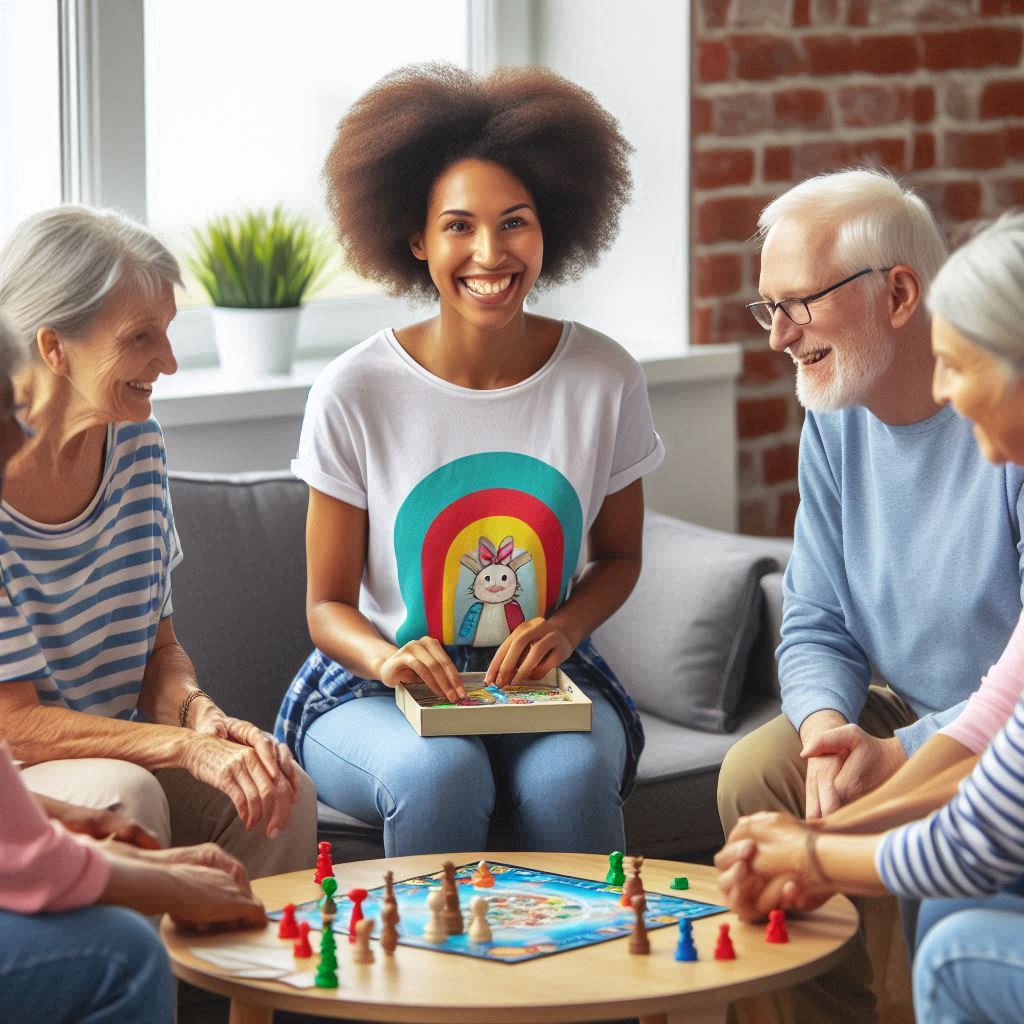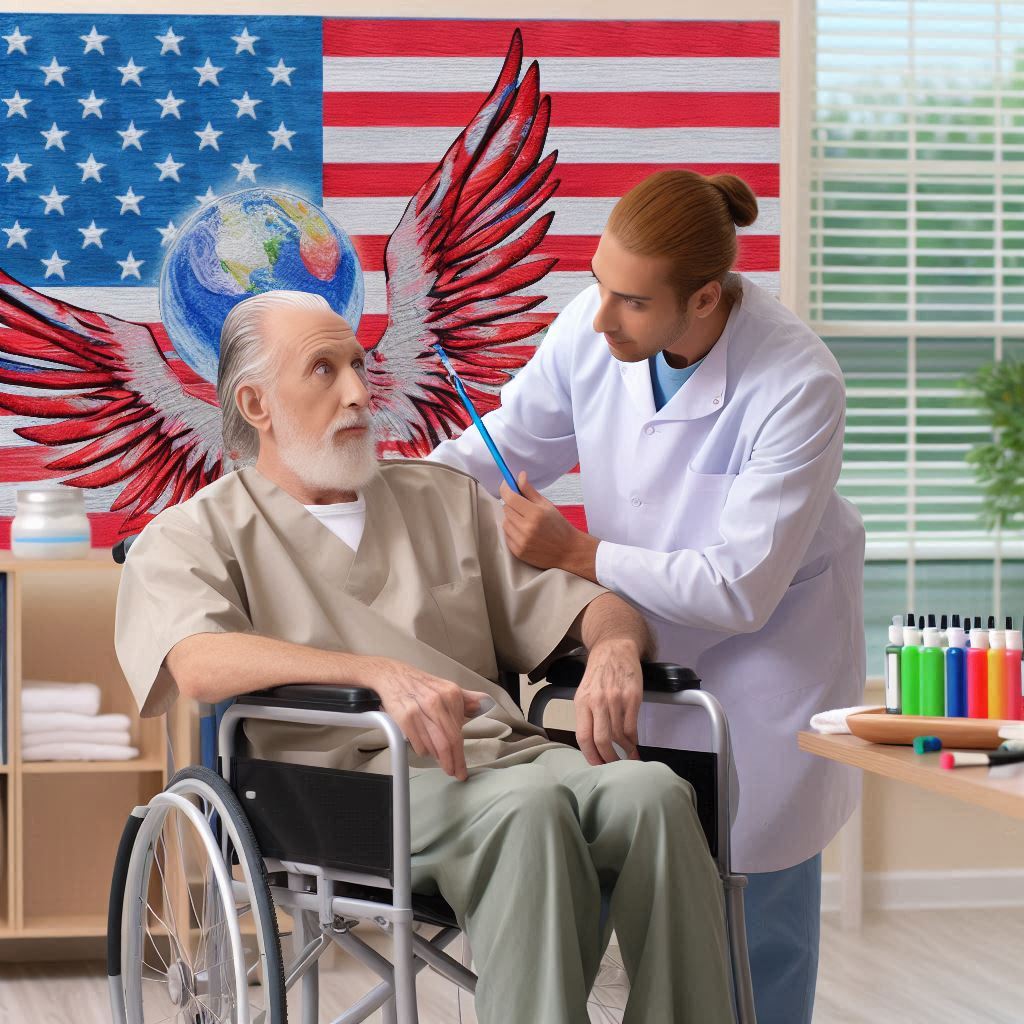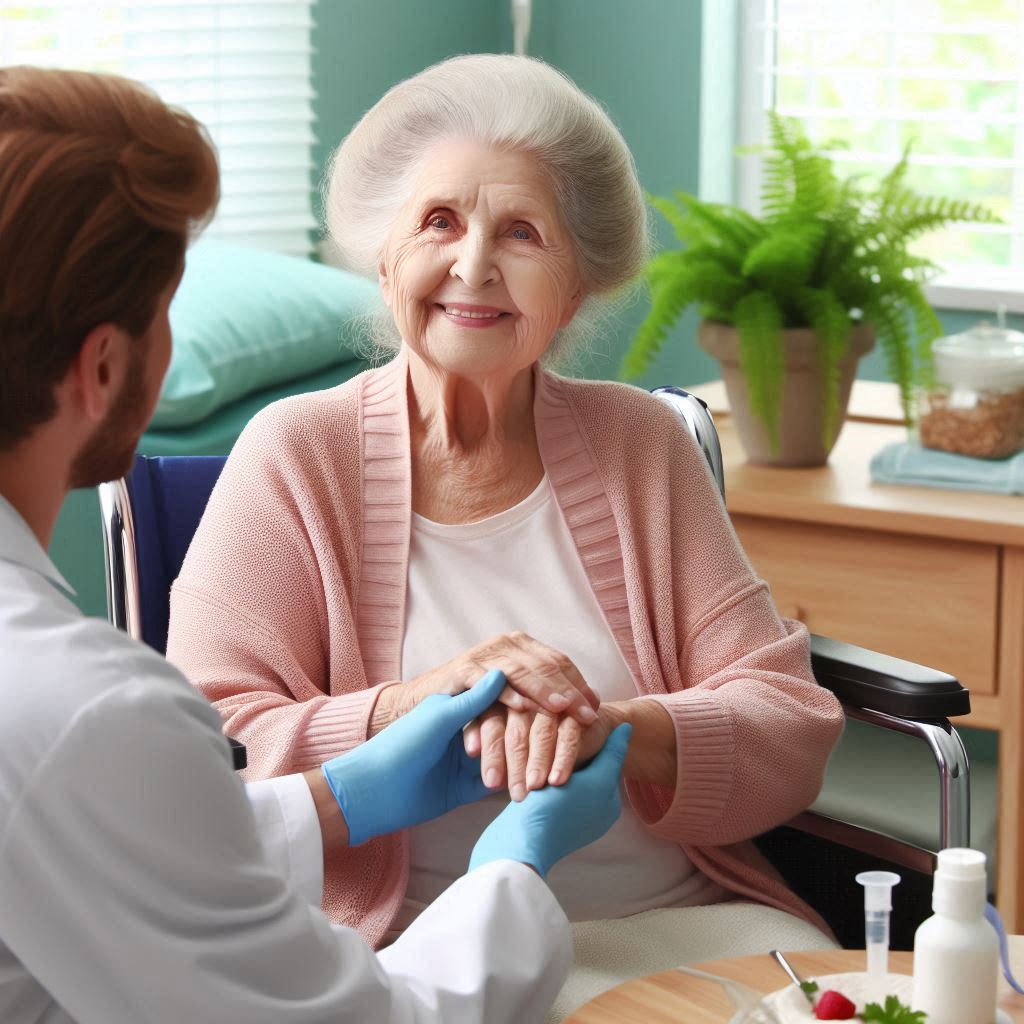Introduction
Recreational therapy is a vital component of stroke recovery. It involves engaging in enjoyable activities to improve physical and mental health. This approach can be pivotal in the rehabilitation process for stroke survivors.
The Importance of Recreational Therapy in Rehabilitation
Stroke can severely impact a person’s physical and cognitive abilities. Traditional rehabilitation focuses on medical and physical therapies, but recreational therapy adds another dimension.
It aims to enhance the quality of life through activities that bring joy and satisfaction. This form of therapy helps individuals regain skills and develop new interests, providing a holistic approach to recovery.
Recreational therapy motivates stroke survivors to participate in their rehabilitation. It offers a sense of normalcy and fun, which can be lacking in traditional therapy.
By integrating enjoyable activities, patients are more likely to stay engaged and committed to their recovery journey.
Benefits of Recreational Therapy for Stroke Survivors
Recreational therapy offers numerous benefits, both physically and mentally. It can help improve motor skills, balance, and coordination.
Activities such as swimming, dancing, or playing sports can enhance physical strength and endurance. These improvements contribute to a better quality of life and greater independence.
Mentally, recreational therapy is equally beneficial. It can reduce feelings of depression and anxiety, which are common among stroke survivors.
Engaging in social activities helps to combat isolation and fosters a sense of community and support. Group activities, such as art classes or book clubs, encourage social interaction and emotional healing.
Physical Benefits of Recreational Therapy
Recreational therapy can significantly enhance physical health. Activities that require movement help to strengthen muscles and improve coordination.
For example, swimming can boost cardiovascular health and enhance overall physical fitness. Simple activities like gardening can improve fine motor skills and hand-eye coordination.
These physical improvements can translate to daily life, making everyday tasks easier and more manageable.
Stroke survivors often struggle with basic activities, but regular participation in recreational therapy can lead to significant improvements in these areas.
Mental and Emotional Benefits
The mental and emotional benefits of recreational therapy are profound. Stroke recovery can be a long and challenging process, often leading to feelings of frustration and hopelessness.
Recreational therapy offers a positive outlet for these emotions.
Creative activities such as painting or music therapy can be therapeutic. They provide a means of self-expression and can help to alleviate stress.
Social activities also play a crucial role. They provide opportunities for socialization, reducing feelings of loneliness and isolation.
Generally, Recreational therapy is a crucial aspect of stroke recovery. It offers a unique blend of physical, mental, and emotional benefits.
By engaging in enjoyable activities, stroke survivors can improve their quality of life and enhance their rehabilitation process.
Exploring the benefits of recreational therapy can lead to a more comprehensive and fulfilling recovery journey for stroke survivors.
Overview of recreational therapy
Recreational therapy is a form of therapy that utilizes activities and interventions to improve physical, cognitive, emotional, and social well-being.
Recreational Therapy and Its Goals in Stroke Recovery
This therapy aims to help stroke survivors enhance their quality of life by engaging in meaningful and enjoyable activities.
Recreational therapists focus on addressing the specific needs and goals of each individual through personalized activity plans.
The goals of recreational therapy in stroke recovery include improving mobility, cognitive function, emotional well-being, and social skills.
Role of Recreational Therapists in Designing Personalized Activities
Recreational therapists play a crucial role in designing personalized activities based on the stroke survivor’s needs, interests, and abilities.
They assess the individual’s physical and cognitive functions to determine the most appropriate recreational activities.
By creating customized activity plans, recreational therapists help stroke survivors develop skills, regain independence, and boost their confidence.
Holistic Approach of Recreational Therapy in Improving Physical and Mental Well-being
Recreational therapy takes a holistic approach to improving physical and mental well-being by addressing the individual’s overall health and wellness.
Through a variety of recreational activities, stroke survivors can improve their physical strength, coordination, and endurance.
Engaging in enjoyable activities also helps to reduce stress, anxiety, and depression, promoting mental well-being in stroke recovery.
Transform Your Career Today
Unlock a personalized career strategy that drives real results. Get tailored advice and a roadmap designed just for you.
Start NowIn general, recreational therapy offers stroke survivors a unique and effective way to enhance their recovery process by focusing on holistic well-being through personalized activities and interventions.
Read: How Genetic Counseling Improves Patient Care
Benefits of recreational therapy for stroke survivors
Recreational therapy has been proven to be beneficial for stroke survivors in various ways:
Engaging in recreational activities can have a positive impact on the overall well-being of stroke survivors. These activities are designed to address specific physical, emotional, and social needs, ultimately aiding in the recovery process.
Physical Benefits
One of the physical benefits of recreational therapy is improved motor skills and coordination. Many stroke survivors experience challenges with movements and coordination due to the damage caused by the stroke.
By participating in recreational activities such as sports, dance, or yoga, survivors can gradually improve their motor skills and regain control over their movements.
Emotional Benefits
In addition to physical benefits, recreational therapy also offers emotional benefits for stroke survivors. Dealing with the aftermath of a stroke can be a highly stressful and anxiety-inducing experience.
Engaging in recreational activities provides a healthy outlet for survivors to express their emotions and reduces stress levels. This can lead to improved mental well-being and overall quality of life.
Social Benefits
Furthermore, recreational therapy promotes social interaction and community integration for stroke survivors. Many individuals may feel isolated or disconnected from others during their recovery process.
Participating in group activities or therapy sessions can help survivors establish connections with others who are going through similar experiences.
This sense of community support can be immensely beneficial in boosting morale and reducing feelings of loneliness.
Overall, recreational therapy plays a crucial role in the recovery journey of stroke survivors. By addressing physical, emotional, and social needs, recreational activities can improve the overall quality of life for individuals post-stroke.
It is important for healthcare providers to consider incorporating recreational therapy into the rehabilitation plans of stroke survivors to ensure a holistic approach to recovery.
Read: Genetic Counseling for Inherited Disorders
Types of Recreational Therapy Activities
Recreational therapy plays a crucial role in stroke recovery as it helps individuals regain physical and mental strength through various activities. Let’s explore the different types of recreational therapy activities that can benefit stroke survivors.
Physical Activities
Engaging in physical activities is essential for stroke recovery as it helps improve strength, flexibility, and overall fitness levels.
Yoga is a great option as it focuses on gentle movements and breathing techniques that can aid in relaxation and stress reduction.
Swimming is another excellent choice as it provides a low-impact workout that can improve cardiovascular health and muscle tone.
Adaptive sports are also beneficial as they allow individuals to participate in sports tailored to their abilities, promoting teamwork and confidence.
Creative Activities
Art therapy and music therapy are creative outlets that can help stroke survivors express their emotions and improve cognitive function.
Art therapy involves activities like painting, drawing, and sculpting, which can enhance fine motor skills and creativity.
On the other hand, music therapy incorporates singing, playing instruments, and listening to music to stimulate brain activity and promote emotional well-being.
Outdoor Activities
Gardening and hiking are outdoor activities that can provide numerous benefits for stroke survivors. Gardening allows individuals to engage in gentle physical activity while connecting with nature and promoting relaxation.
Hiking, on the other hand, offers a more challenging workout that can improve cardiovascular health and endurance. Both activities can help boost mood and overall well-being.
In a nutshell, recreational therapy is a valuable component of stroke recovery that offers a wide range of activities to promote physical, emotional, and cognitive well-being.
By incorporating physical, creative, and outdoor activities into their routine, stroke survivors can enhance their recovery and overall quality of life.
Read: How Genetic Counselors Help with Rare Diseases

Case Studies of Successful Stroke Recovery Through Recreational Therapy
Recreational therapy has been a valuable tool in aiding stroke survivors in their recovery process. Let’s take a look at some inspiring case studies of individuals who have benefited greatly from recreational therapy.
Real-Life Stories of Stroke Survivors
- John, a 55-year-old stroke survivor, experienced significant improvements in his motor skills after participating in recreational therapy sessions focused on dance therapy.
- Mary, a 60-year-old stroke survivor, found joy and motivation in art therapy sessions, leading to enhanced cognitive function and emotional well-being.
- David, a 50-year-old stroke survivor, regained his confidence and independence through recreational therapy activities such as gardening and horticulture therapy.
Progress and Improvements in Quality of Life
Through consistent engagement in recreational therapy, these individuals have shown remarkable progress in various aspects of their lives. They have experienced:
- Improved motor skills and coordination
- Enhanced cognitive abilities and memory
- Increased emotional well-being and sense of purpose
- Boosted confidence and independence in daily activities
Variety of Recreational Therapy Activities
Recreational therapy offers a wide range of activities tailored to the unique needs and preferences of stroke survivors. Some of the recreational therapy activities that have contributed to their recovery include:
- Dance therapy to improve motor skills and balance
- Art therapy to stimulate creativity and cognitive function
- Gardening therapy to enhance physical strength and coordination
- Music therapy to reduce stress and improve mood
- Animal-assisted therapy to promote emotional well-being and social interaction
Overall, recreational therapy has proven to be a holistic approach to stroke recovery, encompassing physical, emotional, and cognitive aspects of rehabilitation.
These case studies serve as a testament to the transformative power of recreational therapy in enhancing the quality of life for stroke survivors.
Read: Genetic Testing and Counseling: An Overview
Transform Your Career Today
Unlock a personalized career strategy that drives real results. Get tailored advice and a roadmap designed just for you.
Start NowChallenges and limitations of recreational therapy for stroke recovery
When it comes to utilizing recreational therapy for stroke recovery, there are several challenges and limitations that may be faced. Addressing these obstacles is crucial in order to fully maximize the benefits of this type of therapy.
Challenges of Recreational Therapy for Stroke Recovery
- Lack of Accessibility: Not all healthcare facilities offer recreational therapy services, making it difficult for some stroke survivors to access this type of treatment.
- Financial Constraints: Recreational therapy sessions can be expensive, leading to financial barriers for individuals looking to participate in this form of therapy.
- Limited Availability: Due to high demand and limited resources, there may be long waitlists for recreational therapy programs, delaying treatment for some stroke survivors.
- Lack of Awareness: Many individuals may not be aware of the benefits of recreational therapy for stroke recovery, leading to underutilization of this treatment option.
Potential Barriers to Accessing Recreational Therapy Services
One of the main challenges in accessing recreational therapy services for stroke recovery is the lack of availability in many healthcare settings.
This can be due to a shortage of trained therapists, limited funding for recreational therapy programs, or a lack of awareness about the benefits of this type of treatment.
Addressing Common Misconceptions about the Effectiveness of Recreational Therapy
There are several misconceptions surrounding the effectiveness of recreational therapy for stroke recovery.
Some individuals may believe that recreational therapy is only for leisure or entertainment purposes, rather than a valuable form of rehabilitation.
Others may underestimate the physical and psychological benefits that can be gained from participating in recreational therapy activities.
Ways to Overcome Challenges and Maximize the Benefits of Recreational Therapy
- Education and Awareness: Increasing education about the benefits of recreational therapy for stroke recovery can help to dispel misconceptions and encourage more individuals to explore this treatment option.
- Accessibility Improvements: Working to increase the availability of recreational therapy services in healthcare settings can help to make this type of treatment more accessible to stroke survivors.
- Financial Support: Developing funding resources or insurance coverage for recreational therapy programs can help to alleviate financial barriers for individuals seeking this form of rehabilitation.
- Research and Advocacy: Continued research into the effectiveness of recreational therapy for stroke recovery, along with advocacy efforts to promote its value, can help to advance the field and increase access to this important form of treatment.
In review, while there are challenges and limitations to utilizing recreational therapy for stroke recovery, there are also ways to overcome these obstacles and maximize the benefits of this valuable form of treatment.
By addressing accessibility issues, dispelling misconceptions, and advocating for increased support, more stroke survivors can experience the positive impact of recreational therapy on their road to recovery.
Conclusion
Recreational therapy offers numerous benefits for stroke recovery. It enhances physical, emotional, and social well-being, providing a holistic approach to rehabilitation.
This therapy involves engaging in enjoyable activities that promote physical movement, cognitive function, and emotional balance.
Stroke survivors often face challenges that extend beyond physical limitations. Recreational therapy addresses these challenges effectively.
Key Benefits of Recreational Therapy
Physical Benefits
Recreational therapy encourages physical activity, which is crucial for stroke recovery. It helps improve strength, coordination, and flexibility.
Activities like swimming, walking, and dancing aid in regaining motor skills. Regular physical activity also reduces the risk of recurrent strokes and other cardiovascular issues.
Recreational therapy promotes overall physical health, which is essential for a successful recovery.
Cognitive Benefits
Stroke can impair cognitive functions such as memory, attention, and problem-solving. Recreational therapy incorporates activities that stimulate the brain.
Puzzles, board games, and memory exercises help enhance cognitive abilities. This mental stimulation is vital for recovering cognitive functions lost due to stroke.
Additionally, it fosters creativity and critical thinking, contributing to overall cognitive improvement.
Emotional Benefits
The emotional impact of a stroke can be profound. Feelings of frustration, depression, and anxiety are common among survivors. Recreational therapy provides a positive outlet for these emotions.
Engaging in enjoyable activities can elevate mood and boost self-esteem. Social interactions during therapy sessions also reduce feelings of isolation and loneliness.
This emotional support is crucial for mental health during the recovery process.
Social Benefits
Recreational therapy often involves group activities, promoting social interaction. This social engagement is beneficial for stroke survivors who might feel isolated.
Building relationships with peers in similar situations provides emotional support. These interactions can lead to lasting friendships and a supportive community.
Social engagement enhances the overall quality of life, making the recovery journey more pleasant.
Importance of Incorporating Recreational Therapy
Integrating recreational therapy into the rehabilitation plan is essential. It offers a comprehensive approach that addresses various aspects of recovery.
Physical therapy alone may not be sufficient for complete rehabilitation.
Recreational therapy complements medical treatments and traditional therapies. It provides a well-rounded approach that considers physical, cognitive, and emotional needs.
Exploring Recreational Therapy
For those affected by stroke, exploring recreational therapy can be life-changing. Consult healthcare professionals to incorporate it into the rehabilitation plan.
Tailoring activities to individual preferences ensures greater engagement and effectiveness.
Recreational therapy can significantly improve the quality of life for stroke survivors. It offers hope and a path to recovery that is both enjoyable and effective.
Encouragement to Act
Take the initiative to explore recreational therapy for yourself or your loved ones. The benefits are profound and multifaceted. Do not underestimate the power of engaging in enjoyable activities.
Embrace recreational therapy as a valuable component of stroke recovery. It has the potential to transform the rehabilitation experience and pave the way to a fulfilling life post-stroke.
In closing, recreational therapy is a powerful tool in stroke recovery. Its holistic approach addresses physical, cognitive, emotional, and social needs.
Incorporate it into your rehabilitation plan to reap its full benefits. Explore the possibilities and embrace the positive impact it can have on recovery.




